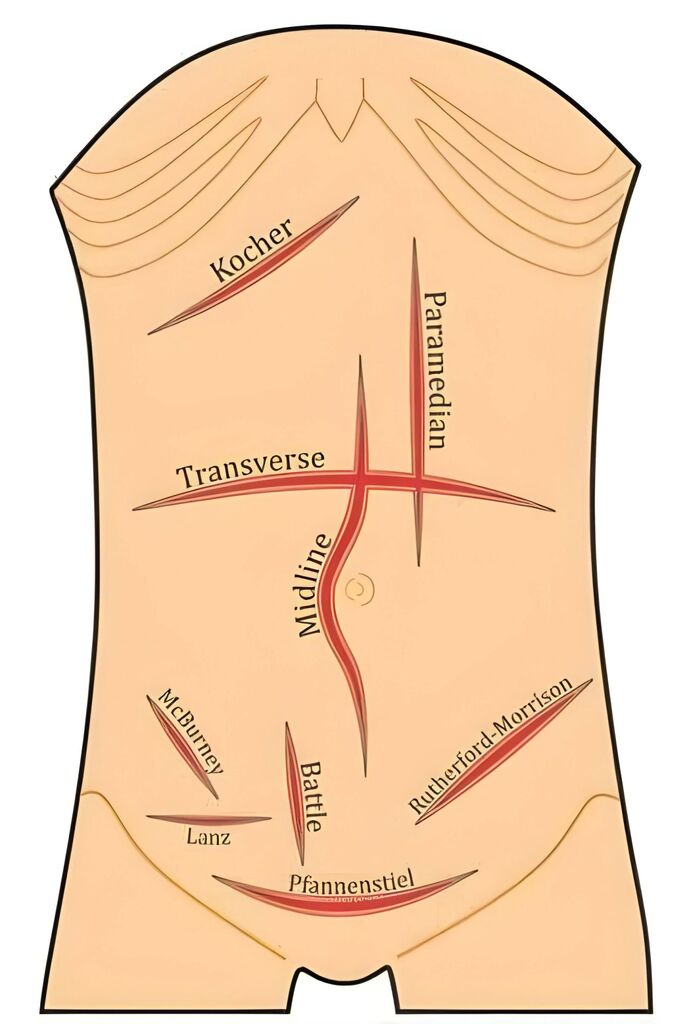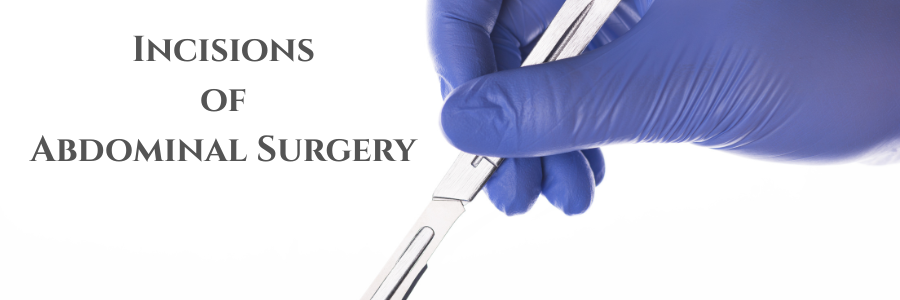1. Midline Incision
- Location: Along the linea alba (center of abdomen)
- Advantages: Quick, minimal blood loss, good exposure
- Uses: Emergency laparotomy, exploratory surgery, bowel surgery
2. Paramedian Incision
- Location: 2–5 cm lateral to the midline
- Advantages: Better wound healing than midline, avoids linea alba
- Uses: Upper GI surgeries (e.g., stomach, pancreas)
3. Transverse Incision
- Location: Horizontally across the abdomen
- Advantages: Better cosmetic result, less postoperative pain
- Uses: Pediatric surgeries, selective abdominal procedures
4. Kocher Incision
- Location: Right subcostal (under right ribs)
- Advantages: Good access to upper right abdomen
- Uses: Gallbladder (cholecystectomy), liver surgery
5. McBurney Incision
- Location: Right lower quadrant, oblique direction
- Advantages: Muscle-splitting, minimal damage
- Uses: Appendectomy (classic incision)
6. Lanz Incision
- Location: Similar to McBurney but transverse
- Advantages: Better cosmetic outcome, same use
- Uses: Appendectomy (more common in modern practice)
7. Pfannenstiel Incision
- Location: Curved horizontal incision just above pubic symphysis
- Advantages: Aesthetic, less painful, strong healing
- Uses: Cesarean section, pelvic surgeries (e.g., bladder, gynecology)
8. Battle’s Incision
- Location: Similar region as Pfannenstiel but vertical
- Uses: Historical use for appendectomy; now rarely used
9. Rutherford-Morrison Incision
- Location: Oblique, lower quadrant (right or left)
- Advantages: Excellent exposure for retroperitoneal structures
- Uses: Kidney transplantation, pelvic surgeries

These incisions are selected based on factors such as:
- Urgency of the surgery
- Organ system involved
- Cosmetic concerns
- Risk of infection or hernia
Read also:
- Concepts of Elimination Rate and Clearance of Drugs
- ESC Key Notes on Obesity and Cardiovascular Disease
Resource Person: Akmal K. Ishak

